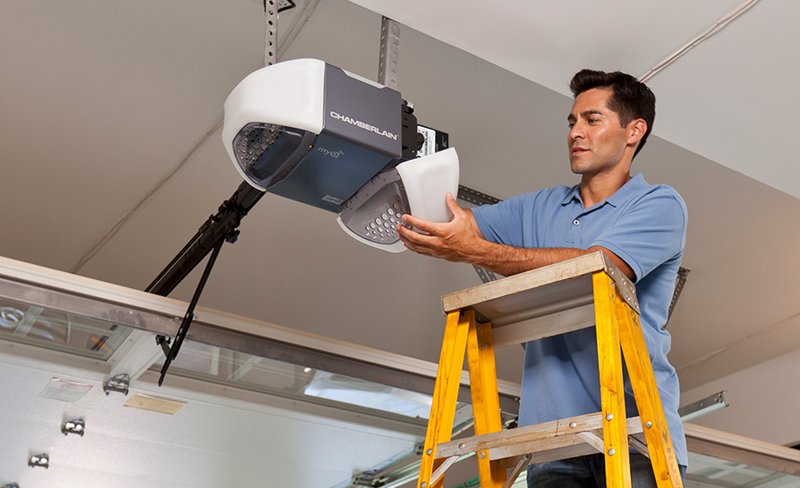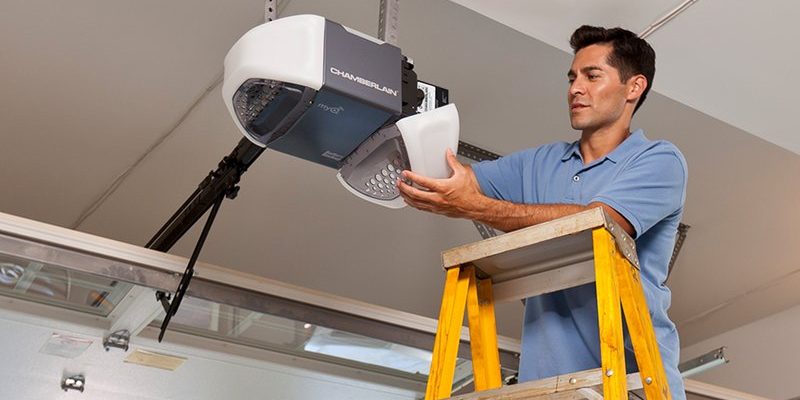
Much like a new pair of shoes, your garage door opener may need a little breaking in. Some squeaks are normal and can be smoothed out with a few easy adjustments. Other squeaks might signal that something more serious is going on. So, grab your toolkit, and let’s dive into how to troubleshoot your garage door opener and get it running smoothly.
Identifying the Source of the Squeak
Before we jump to solutions, we need to figure out where that noise is coming from. Is it the motor? The tracks? The rollers? Checking these areas can help you pinpoint the problem. Here are some common spots to investigate:
- Motor Unit: This is where the magic happens. If the motor is squeaking, it could be due to lack of lubrication.
- Tracks: Dirty or misaligned tracks can create friction, causing a squeaking sound. Make sure they are clean and free of debris.
- Rollers: Old or rusting rollers might be the culprit. They need to glide smoothly along the tracks, and any sticking can almost certainly lead to squeaking.
Once you’ve identified the area, you can move on to some easy fixes.
Lubrication: A Simple Solution
One of the simplest and most effective ways to quiet a squeaky garage door opener is through lubrication. Think of it like putting a little oil on the hinges of a door. It’s quick and often does the trick!
For this task, you’ll want to use a high-quality lubricant specifically designed for garage doors—or even a silicone spray will work wonders. Here’s how to do it:
1. Clean the Area: Remove any dust or grime from the motor, tracks, and rollers. A clean surface ensures the lubricant can work properly.
2. Apply Lubricant: Spray the lubricant on the tracks and directly on the rollers. Be careful not to oversaturate them.
3. Test the Opener: Run your garage door opener a couple of times to see if the squeak persists. If it’s quieter, congratulations—you’ve likely found the source of the problem!
Check for Loose Hardware
Sometimes, squeaks can come from loose screws or bolts. Over time, as the garage door opener operates, certain fittings can loosen, leading to noise. Here’s how to tighten everything up:
1. Examine the Brackets and Bolts: Start with the mounting brackets on the door and the opener. Use a screwdriver or wrench to ensure everything is snug.
2. Inspect the Track: If the track is loose, it can cause vibrations that lead to squeaks. Tighten any loose screws as you go along.
3. Door Springs: Finally, check the springs. If they’re loose, it might be time for a professional to step in, as they can be dangerous.
Alignment Issues
Another reason your garage door opener might be squeaking is misalignment. When the tracks aren’t aligned properly, they can cause unnecessary friction.
To check for this, follow these simple steps:
1. Visual Inspection: Look down the track from the front of the garage. The tracks should be level and parallel to each other.
2. Adjust as Necessary: If they look misaligned, it’s time for some adjustment. Loosen the screws holding the track in place and gently nudge the track back into the correct position before re-tightening the screws.
3. Test Again: After making adjustments, run your garage door opener to see if the squeaking has stopped.
Understanding Roller Wear and Tear
Over time, rollers can wear out. Squeaking might be an indication that your rollers need to be replaced.
You’ll know it’s time when:
- The rollers are visibly worn or cracked.
- They feel rough when you manually operate the door.
- The sound is especially loud when the door hits a certain point along the track.
Replacing rollers isn’t as daunting as it sounds. With a few tools and a little time, you can do it yourself.
Inspecting the Garage Door Opener System
If you’ve addressed everything above and the squeak still lingers, the issue might be deeper within the garage door opener system itself. This might involve your remote control or the entire motor setup.
1. Remote Control Issues: Occasionally, the remote may not sync properly with the opener. Resetting or repairing the remote can sometimes fix the issue.
2. Motor Checks: If your opener motor sounds strained or loud, it may need to be serviced. Check for overheating or unusual vibrations.
3. Potential Replacement: If everything else checks out, the motor may just be to blame. Consider seeking out professional advice for replacement options.
Regular Maintenance to Prevent Squeaks
Once you put all this work into troubleshooting, you won’t want to experience squeaks again anytime soon. Here are some regular maintenance tips:
1. Regular Lubrication: Aim to lubricate all moving parts every six months. Mark it on your calendar!
2. Visual Inspections: Regularly check for loose parts or misalignment to catch problems early.
3. Keep the Area Clean: Sweep away debris in your garage and dust the opener regularly.
When to Call a Professional
If you’ve tried all these troubleshooting steps and the squeak is still there, it might be time to call in a professional. Certain issues, particularly with the motor or the electrical system, can be complex and require specialized knowledge.
A trained expert can accurately diagnose and fix problems without putting you or your garage door opener at risk.
The Final Touch: Peace of Mind
You might feel a little overwhelmed after reading all this, but troubleshooting a garage door opener with a squeak isn’t as complex as it seems. With a few basic tools and some elbow grease, most issues can be resolved quickly, allowing you to enjoy the smooth, quiet operation of your garage door.
Remember, whether it’s a little lubricant or tightening some screws, you’re getting the hang of this! Plus, regular maintenance means you can ward off future squeaks, keeping your garage door opener in tip-top shape. So go ahead and give it a try!
